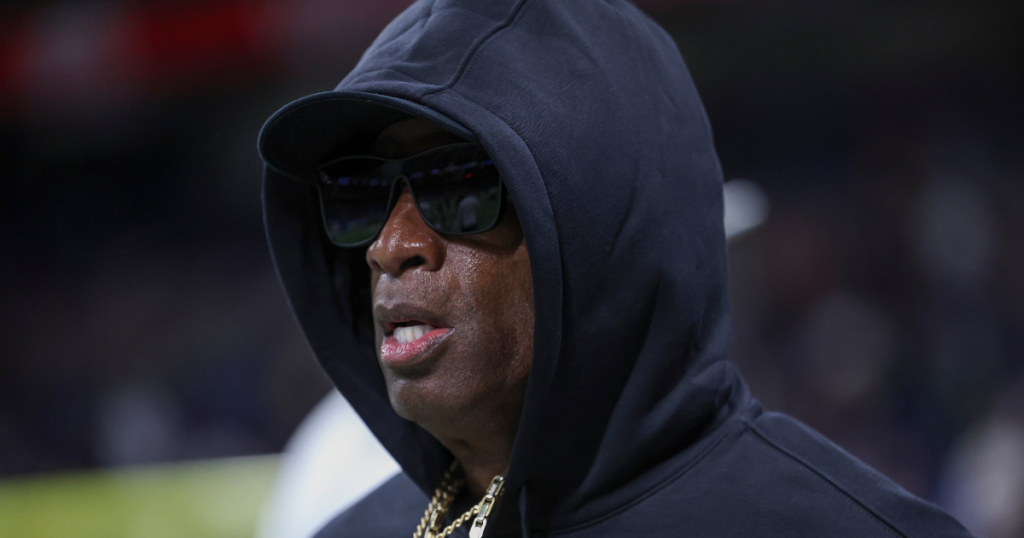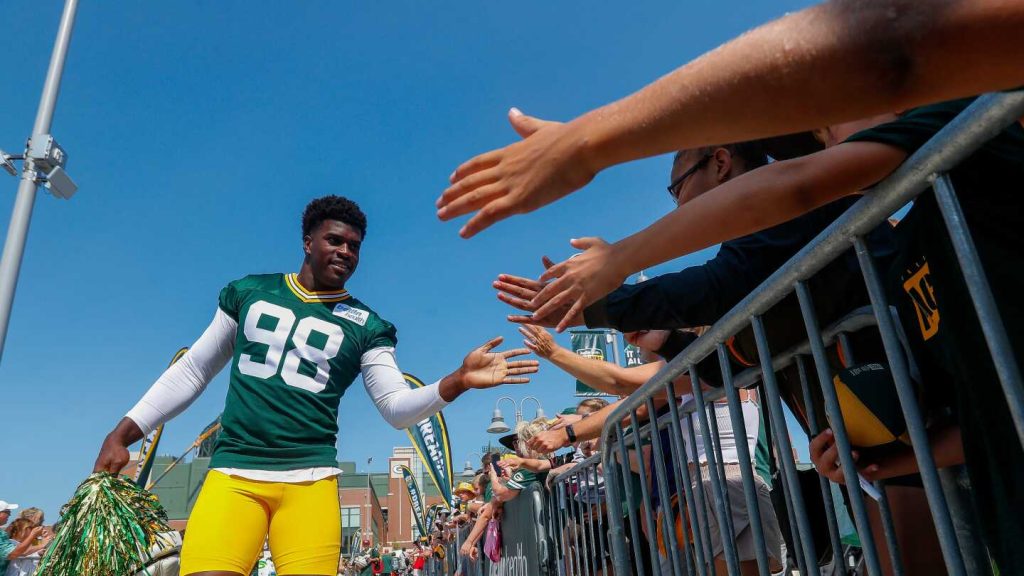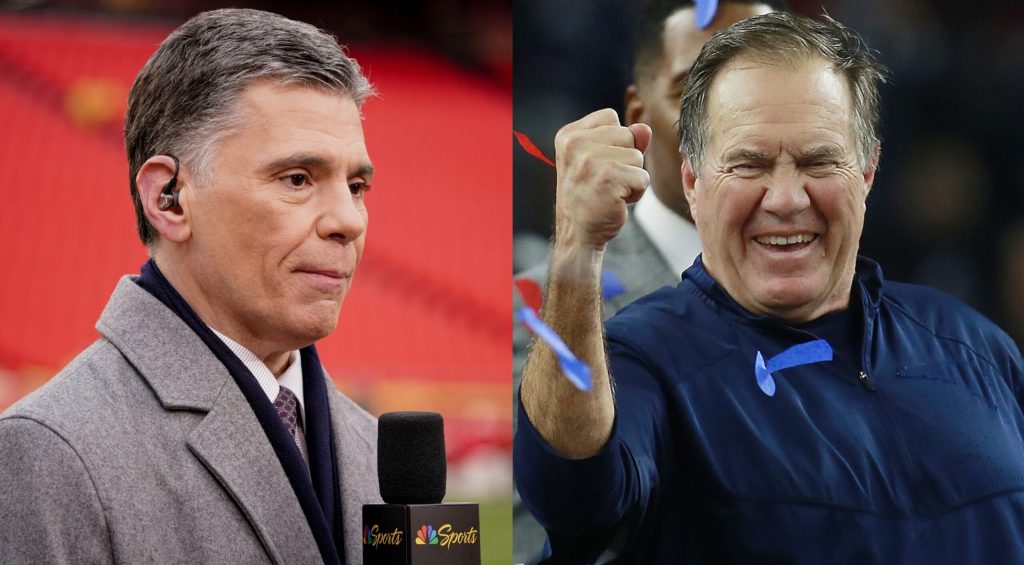Recruiting in college football has become a complex maze, filled with challenges and distractions that can impact the future of young athletes. The landscape has shifted dramatically, especially with the introduction of name, image, and likeness (NIL) deals, creating a whirlwind of opportunities and pitfalls for recruits.
Deion Sanders on the Changing Landscape
During a recent appearance on ESPN’s First Take, Colorado head coach Deion Sanders shared his insights on the current state of recruiting. With the Super Bowl LIX festivities in New Orleans as a backdrop, Sanders addressed the pressing issue of how financial incentives are reshaping the choices young athletes make.
“Is that why we see the jumping around?” asked ESPN’s Shannon Sharpe, highlighting the trend of players switching schools frequently. “You know, I’m here for a year, I’m there for a year? It seems, like you said, you take the bag, which might not be the best situation but they offer the most security as far as financially.”
Sanders responded thoughtfully, pointing out that the involvement of parents in negotiations has drastically changed the recruitment process. “(It’s) because parents are involved,” he explained. “Once upon a time, my parents were praying for us and couldn’t wait until we got to the next level. Now, these parents will never gain (any) darn thing. They want theirs off the top, and that’s not proper.”
The Role of Parents and Financial Literacy
This shift in parental involvement has raised concerns for Sanders, who feels that many young athletes are being swayed by immediate financial gains rather than focusing on their long-term success. He lamented the unfortunate reality that some agents have attached themselves to these young men, complicating their journey.
“I feel bad for these kids and some of the agents that have attached themselves to these young men,” he added. “It’s very unfortunate.”
In this era of college athletics, where money often takes center stage, Sanders emphasizes the importance of education—specifically, financial literacy. “I wish they took a class on financial literacy,” he stated. “That should be mandatory in college sports as well as high school.” This kind of education could empower athletes to make informed decisions about their futures.
Choosing Passion Over Profit
Despite the lure of financial incentives, Sanders is adamant that the players he attracts to Colorado are those who genuinely love the game. “Well, when kids come to play for me at Colorado, they come to play for me and the coaching staff that we’ve assembled. They hadn’t come to play for money because I let them know that will maintain you. That pro contract is gonna sustain you. So we’re chasing that thing,” he explained.
He believes that the current trend of choosing schools based on financial offers is detrimental. “I don’t attract those type of kids that’s playing for a bag. I attract those type of kids that’s just playing because they love the game. That’s what I want. I don’t like that other thing. That other thing has disrupted a lot of things because kids nowadays are choosing a bag rather than a situation and a place that’s more conducive to their success.”
The Bigger Picture in College Football
Sanders is passionate about ensuring that players see the bigger picture when it comes to their careers. He recognizes that while there are significant financial opportunities available, it’s crucial for athletes to prioritize their development and future prospects. “It’s pretty profitable to play for Coach Prime and the Buffaloes given all there is to gain in his program,” he noted.
However, he wants his players to understand that the allure of immediate financial gain should not overshadow their long-term goals. He encourages them to focus on their skills, development, and the right environment for growth.
The Future of Recruiting
As college football continues to evolve, the recruitment process will likely face even more changes. With the increasing influence of NIL deals and the role of parents, coaches like Sanders are tasked with guiding young athletes through this complex landscape.
It’s essential for recruits to remain grounded and focused on what truly matters—their passion for the game and their future success. By fostering a culture of love for football over financial gain, coaches can help shape a generation of players who prioritize their development and well-being.
In a world where financial incentives can often overshadow the love of the game, Deion Sanders stands as a beacon of hope, advocating for a return to the core values of college football. By emphasizing education, passion, and long-term success, he aims to guide young athletes on a path that leads not just to immediate rewards, but to fulfilling and prosperous careers in the sport they love.





























